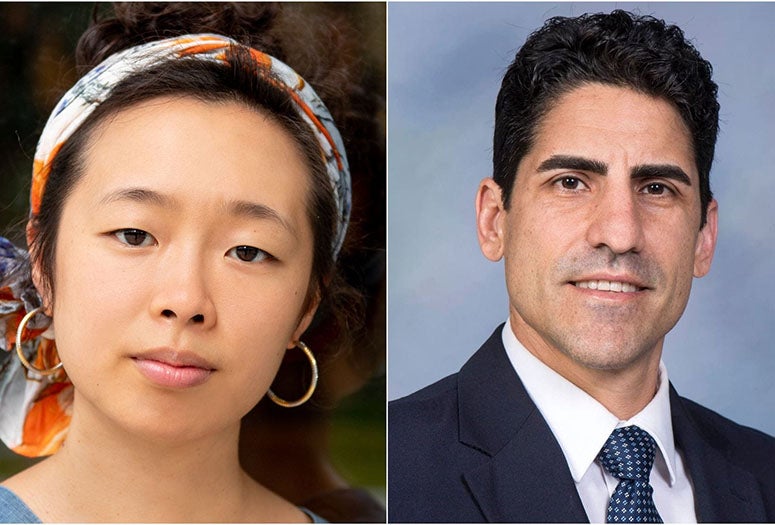What is a fact? Who is science for? And who does it harm? These are just a few of the questions posed by Rice faculty during O-Week video addresses to the incoming Class of 2025.
With many O-Week activities and events moved online due to pandemic restrictions, the faculty address, which is typically held in Tudor Fieldhouse, was delivered via video this year in each of the 11 residential college commons.
Rice assistant professor of history Lan Li kicked off the address with a deep dive into the history of science — in particular, its very foundations: What counts as scientific knowledge? Who gets to determine what is and isn’t a fact? And in our celebration of science, what sorts of ethical and social questions are ignored?
“One of the main questions that I was interested in was elements of Chinese medicine, for instance — which is something that I grew up with, but I never really had the space to explore because science was universal and science was a space that excluded other forms of knowing,” said Li, who received a Ph.D. in history, anthropology, and Science Technology and Society (STS) Studies from the Massachusetts Institute of Technology in 2016 and later served as a Presidential Scholar in Society and Neuroscience at Columbia University.
Decolonizing medicine became a powerful framework for Li in seeking “other ways of knowing that existed beyond the realm of the science” we’re all taught in school, which often focuses on “Western” perspectives and knowledge.
“For thousands of years, people have taken a pulse to diagnose your illness,” said Li, whose research on the topic of pulses was also featured in an exhibition at Rice’s Solar Studios earlier this year. “How do we study that if it doesn't fit into a randomized control trial?”
Rice, Li said, is a space that encourages those kinds of questions. Moreover, it supports these lines of inquiry through such things as courses in medical ethics and the Medical Humanities Program.
“Keep your curiosity close to you,” Li told the students. “That will allow you to be open to different ideas that probably are completely foreign and completely contradict what you've known or thought about growing up. So be curious about the world and be open to new ways of approaching perspectives.”
Rafael Verduzco ’01 matriculated at Rice 24 years ago and went on to get his Ph.D. at the California Institute of Technology. Now, as professor of chemical and biomolecular engineering, and of materials science and nanoengineering, he’s back at his alma mater and working on such ground-breaking projects as a Defense Advanced Research Projects Agency-funded sensor to detect COVID-19 in the air.
Using slides, Verduzco walked students through some of his research to show that work at Rice isn’t “esoteric” stuff done “for other scientists.”
“It's stuff that matters and stuff that's important,” Verduzco said.
His advice to the students ran parallel to Li's.
“I strongly encourage you to go beyond the classroom and get involved in extracurricular activities,” he said.
And as someone still in touch with his own freshman-year roommates at Rice, Verduzco stressed the importance of making friends and having fun.
“Those will be some of the most meaningful things you accomplish while you're a student here,” he said. “Just meeting other people and connecting with others.”

